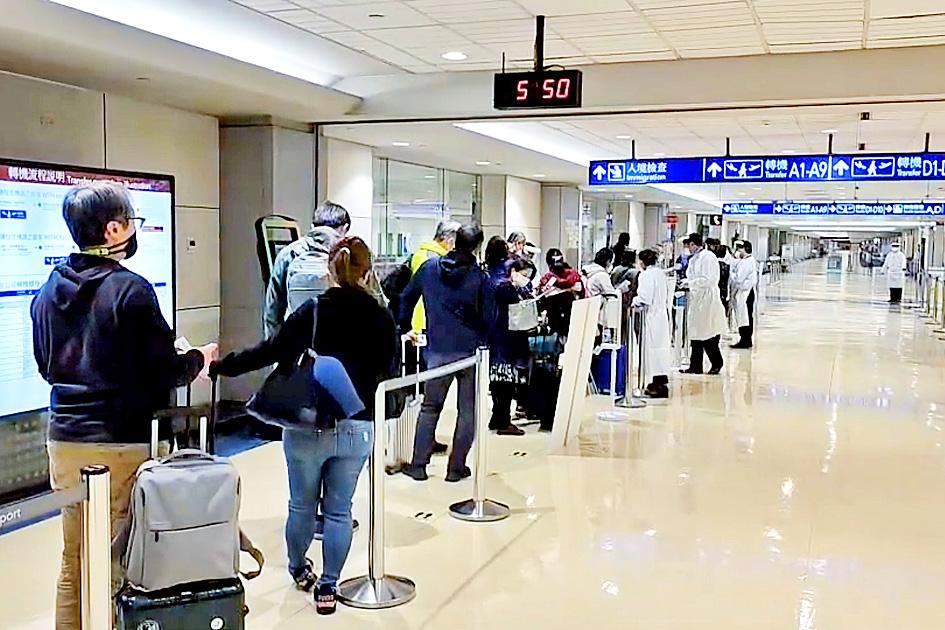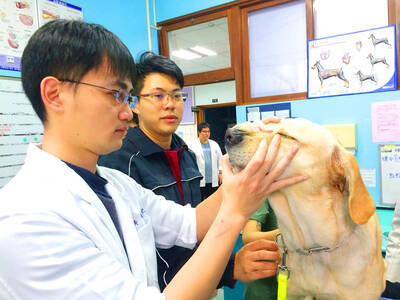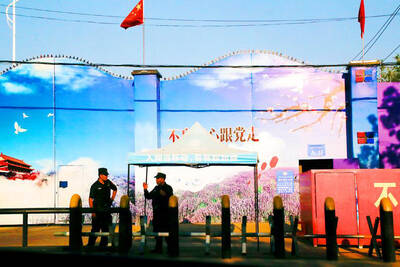The number of Chinese nationals entering Taiwan has dropped dramatically during the COVID-19 pandemic, with no Chinese arriving as tourists, government statistics showed.
Only about 13,000 Chinese entered Taiwan last year amid strict border control measures to prevent the virus spreading, compared with more than 2.68 million in 2019.
Chinese nationals must apply for a visa before entering Taiwan. They may enter the nation for social exchanges, professional exchanges, business exchanges, medical exchanges or tourism, according to the Act on Permission for Entrance of People of the Mainland Area into the Taiwan Area (大陸地區人民進入台灣地區許可辦法).

Photo: CNA
The number of Chinese nationals who visited Taiwan for social exchanges dropped from 66,717 in 2019 to 1,484 last year. Of those, 153 visited relatives, 1,284 reunited with their families and 47 attended funerals or transported ashes.
The number of Chinese who visited Taiwan for professional exchanges fell from 90,994 in 2019 to 73 last year.
Thirteen of those traveled to conduct religion-related research and studies, including several Tibetan Buddhist monks who were prosecuted in China and came to Taiwan to attend events under special permission by the government, people with knowledge of the matter said.
The others were 25 airline staff deployed in Taiwan, 15 reporters, nine investment and management personnel, four organization staff, four people with ad hoc permissions, two who helped train a national sports team and one who arrived for short-term exchanges.
Chinese nationals who entered Taiwan for business exchanges mostly visited to deliver speeches, undertake business studies or training, attend events or provide services as relocated staff in multinational enterprises.
A total of 888 Chinese visited Taiwan for these purposes last year, compared with about 10,000 people annually before the pandemic.
To balance disease prevention and economic development, the Central Epidemic Command Center on March 7 allowed business travelers from China to enter Taiwan to sign contracts or assume new positions.
While more than 41,000 Chinese people visited Taiwan in 2019 for medical exchanges, only 110 such visitors came last year: 56 who attended a doctor’s appointment and 54 who accompanied patients.
Due to COVID-19 border controls and Beijing’s suspension on Aug. 1, 2019, of a program that allowed individual tourists from 47 Chinese cities to travel to Taiwan, no Chinese tourists arrived in Taiwan last year, compared with 1,903,705 in 2019.
The government has been controlling the flow of people since February 2020 to prevent the spread of the virus, a person familiar with immigrant affairs said, adding that government agencies would continue to gather information about the COVID-19 outbreak in China, which can serve as a reference for the center to adjust its disease prevention policies.

Former Czech Republic-based Taiwanese researcher Cheng Yu-chin (鄭宇欽) has been sentenced to seven years in prison on espionage-related charges, China’s Ministry of State Security announced yesterday. China said Cheng was a spy for Taiwan who “masqueraded as a professor” and that he was previously an assistant to former Cabinet secretary-general Cho Jung-tai (卓榮泰). President-elect William Lai (賴清德) on Wednesday last week announced Cho would be his premier when Lai is inaugurated next month. Today is China’s “National Security Education Day.” The Chinese ministry yesterday released a video online showing arrests over the past 10 years of people alleged to be

THE HAWAII FACTOR: While a 1965 opinion said an attack on Hawaii would not trigger Article 5, the text of the treaty suggests the state is covered, the report says NATO could be drawn into a conflict in the Taiwan Strait if Chinese forces attacked the US mainland or Hawaii, a NATO Defense College report published on Monday says. The report, written by James Lee, an assistant research fellow at Academia Sinica’s Institute of European and American Studies, states that under certain conditions a Taiwan contingency could trigger Article 5 of NATO, under which an attack against any member of the alliance is considered an attack against all members, necessitating a response. Article 6 of the North Atlantic Treaty specifies that an armed attack in the territory of any member in Europe,

LIKE FAMILY: People now treat dogs and cats as family members. They receive the same medical treatments and tests as humans do, a veterinary association official said The number of pet dogs and cats in Taiwan has officially outnumbered the number of human newborns last year, data from the Ministry of Agriculture’s pet registration information system showed. As of last year, Taiwan had 94,544 registered pet dogs and 137,652 pet cats, the data showed. By contrast, 135,571 babies were born last year. Demand for medical care for pet animals has also risen. As of Feb. 29, there were 5,773 veterinarians in Taiwan, 3,993 of whom were for pet animals, statistics from the Animal and Plant Health Inspection Agency showed. In 2022, the nation had 3,077 pediatricians. As of last

XINJIANG: Officials are conducting a report into amending an existing law or to enact a special law to prohibit goods using forced labor Taiwan is mulling an amendment prohibiting the importation of goods using forced labor, similar to the Uyghur Forced Labor Prevention Act (UFLPA) passed by the US Congress in 2021 that imposed limits on goods produced using forced labor in China’s Xinjiang region. A government official who wished to remain anonymous said yesterday that as the US customs law explicitly prohibits the importation of goods made using forced labor, in 2021 it passed the specialized UFLPA to limit the importation of cotton and other goods from China’s Xinjiang Uyghur region. Taiwan does not have the legal basis to prohibit the importation of goods